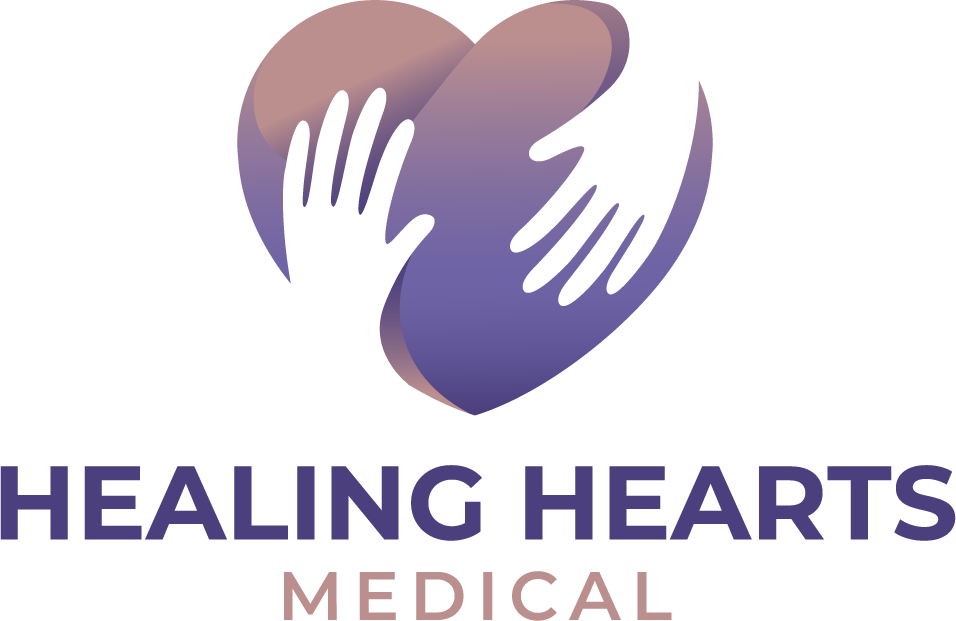When you’re steering through post-hospitalization care in the Dallas area, creating a safe recovery plan is vital. Understanding discharge instructions and coordinating with local healthcare providers can feel overwhelming. But by choosing the right rehabilitation services and utilizing home health care options, you guarantee a smoother recovery process. It’s essential to engage with community support and manage medications effectively. What are the steps to achieve this thorough care and support in your area?
Understanding the Importance of Post-Hospitalization Care
When you or a loved one is discharged from the hospital, understanding the importance of post-hospitalization care becomes essential. Effective patient education guarantees you know how to manage medications and recognize potential complications. This knowledge helps in preventing readmissions and promotes a smoother recovery process. It’s important to understand discharge instructions thoroughly and ask questions if anything is unclear. Caregiver support plays an essential role in this change period. Encourage caregivers to participate in educational sessions and provide them with resources to better assist you during recovery. They should be well-prepared to assist with daily activities and monitor your health status. With informed patients and supported caregivers, the likelihood of a successful recovery increases greatly, fostering overall well-being.
Identifying Key Healthcare Providers in Dallas
Maneuvering the healthcare landscape in Dallas requires identifying key healthcare providers who can support post-hospitalization recovery. Start by consulting your primary care physician for guidance on specialist referrals. They can direct you to experts in fields like cardiology or orthopedics, depending on your needs. You should also explore local services that provide in-home care or outpatient treatments. These services can include physical therapy, nursing care, or even mental health support, ensuring a thorough approach to recovery.
Research hospitals and clinics in the Dallas area, paying attention to their patient reviews and service offerings. Remember, effective post-hospitalization care often involves a team approach, so communication between your healthcare providers is essential. By identifying these key players, you’ll set a foundation for a safe and effective recovery journey.
Selecting the Right Rehabilitation Services
When selecting the right rehabilitation services in Dallas, you’ll want to evaluate therapy options to guarantee they meet your specific recovery needs. It’s important to compare facility amenities, such as equipment, accommodations, and additional services, to make an informed choice. By carefully considering these factors, you can select a facility that supports your path to recovery effectively.
Evaluating Therapy Options
How do you guarantee that you’re selecting the right rehabilitation services after a hospital stay in Dallas? Start by evaluating therapy modalities customized to your specific needs. Consider these steps to make an informed decision:
- Identify Therapy Modalities: Determine which therapies, such as physical, occupational, or speech therapy, align with your recovery goals.
- Understand Patient Preferences: Take into account your personal preferences and comfort levels with different therapy approaches and settings.
- Consult with Healthcare Providers: Discuss potential options with your doctors or therapists to guarantee the selected services match your medical requirements.
- Research Provider Expertise: Look into the experience and specialization of rehabilitation providers in the Dallas area to guarantee quality care.
Comparing Facility Amenities
Although selecting the right rehabilitation services can be challenging, comparing facility amenities in Dallas is essential for ensuring a comfortable and effective recovery. When reviewing options, consider the facility comparisons and amenity features that matter most to you. Look for amenities like private rooms, specialized equipment, and recreational spaces that can enhance your recovery experience.
| Facility | Amenity Features |
| Health & Wellness Center | Private rooms, gym access |
| Dallas Rehab Facility | Specialized therapy pools |
| Recovery Suites of Dallas | In-room dining, Wi-Fi |
| Elite Rehab Services | 24/7 medical support |
| Oakwood Healing Center | Outdoor gardens, pet therapy |
These features are not just luxuries; they can greatly impact your healing process. By carefully reviewing facility comparisons and amenity features, you can make an informed decision that aligns with your recovery needs.
Exploring Home Health Care Options
Why explore home health care options after a hospital stay in Dallas? Home health offers a customized approach to recovery, allowing you to heal in the comfort and familiarity of your home. Here’s why you should consider it:
- Personalized Care: Receive individualized personal care plans that address your specific health needs, guaranteeing a smoother recovery.
- Convenience: Avoid the stress of traveling to appointments. Home health professionals bring the necessary medical care directly to you.
- Safety: Professional caregivers can help prevent accidents or complications by monitoring your condition and adjusting care as needed.
- Cost-Efficiency: Often, home health care can be more affordable than extended hospital stays or rehabilitation centers, providing essential services without straining your budget.
Exploring these options guarantees a safer, more effective recovery process.
Coordinating Care With Primary Physicians

When coordinating care with primary physicians after a hospital stay, it’s vital to maintain clear communication to guarantee continuity of care. You should provide your doctor with access to your complete medical history, including any recent treatments and medications. Don’t forget to schedule follow-up appointments promptly to address ongoing health needs and monitor recovery progress.
Communication With Doctors
How effectively are you communicating with your doctors after a hospital stay? Engaging in clear doctor-patient communication is essential for a smooth recovery. Effective information sharing guarantees that your primary physician fully understands your post-hospital needs. Here are some strategies to enhance communication:
- Prepare Questions: Before appointments, list questions and concerns about your recovery. This helps focus discussions and guarantees important details aren’t overlooked.
- Bring a Companion: Having a friend or family member present can help remember information and ask additional questions.
- Use Technology: Utilize patient portals to access medical notes, message your doctor, and track appointments.
- Request Clarification: Don’t hesitate to ask for explanations if you don’t understand medical terms or instructions, guaranteeing you’re clear on your care plan.
Sharing Medical History
Sharing your medical history with your primary physician is a key step in coordinating effective post-hospital care. By providing your physician with updated medical records, you guarantee they have a thorough understanding of your recent hospital treatments and any ongoing needs. This information allows them to make informed decisions about your follow-up care. It’s essential to maintain patient confidentiality during this process, ensuring that your sensitive information is shared securely and only with authorized healthcare providers. Discuss the best methods for transferring your medical records, whether electronically or through physical copies, to prevent any breaches. By taking these steps, you facilitate a seamless shift from hospital to home, ultimately supporting a safe and smooth recovery in the Dallas area.
Follow-up Appointment Scheduling
Scheduling your follow-up appointment is a pivotal step in guaranteeing continuity of care after a hospital stay. It helps you reconnect with your primary physician and update them on your progress. To make this process smooth, consider the following:
- Appointment Reminders: Set up reminders through your phone or email. Some clinics offer automated reminders, which can prevent missed appointments.
- Scheduling Flexibility: Choose a time that fits your routine. Many clinics offer evening or weekend slots, accommodating your schedule.
- Coordinate with Specialists: If you’ve seen specialists, verify your primary physician receives their reports for a thorough overview of your condition.
- Prepare Questions: List any concerns or symptoms to discuss. This guarantees you make the most of your appointment time.
These steps support effective post-hospitalization care.
Accessing Community Support Resources
When recovering from a hospital stay in Dallas, it’s crucial to tap into the community support resources available to aid your change. Local organizations provide a network of services designed to assist you during recovery. Start by exploring community resources such as support groups, which offer emotional and practical guidance. These groups can connect you with people facing similar challenges, fostering a sense of belonging and understanding.
Local organizations like the Visiting Nurse Association of Texas can provide in-home care services, ensuring professional medical assistance when needed. Additionally, Meals on Wheels delivers nutritious meals if cooking isn’t feasible. Reach out to Dallas Area Agency on Aging for resources customized for older adults, including transportation services and senior centers. Utilizing these services can greatly enhance your recovery process.
Managing Medications and Medical Equipment
Alongside tapping into community support resources, effectively managing your medications and medical equipment is essential for a smooth recovery after a hospital stay in Dallas. Here’s how you can guarantee medication adherence and equipment safety:
- Create a Medication Schedule: Use reminders or apps to keep track of your doses and timings, guaranteeing you never miss a dose.
- Understand Your Medications: Know the purpose, side effects, and interactions of each medication to avoid potential risks.
- Inspect Medical Equipment Regularly: Check for any signs of wear or damage, guaranteeing all devices function correctly and safely.
- Consult Healthcare Professionals: Schedule regular follow-ups to address any questions or concerns about your medications and equipment, guaranteeing proper usage and safety.
Monitoring Progress and Adjusting the Recovery Plan

How can you guarantee a seamless change from hospital to home? Start by implementing a robust progress tracking system. Regularly monitor essential signs, pain levels, and overall well-being to confirm you’re on the right path. Document each observation meticulously, noting any deviations from expected recovery patterns. This data aids in making timely recovery adjustments. If progress stalls or complications arise, consult healthcare professionals to modify treatment strategies. Adjustments might include altering medication dosages, modifying physical activity levels, or revising dietary plans. Stay proactive in your approach, maintaining open communication with caregivers and medical staff. By actively tracking progress and making necessary recovery adjustments, you’ll foster a safer, more effective change, confirming ideal recovery outcomes in the Dallas area.
Frequently Asked Questions
How Can Family Members Be Involved in the Recovery Process?
You can facilitate recovery by using effective communication strategies and building strong support networks. Actively listen, share updates, and collaborate with healthcare providers. Encourage the patient, ensuring they feel supported and motivated throughout their healing journey.
What Role Do Diet and Nutrition Play in Post-Hospitalization Recovery?
Diet and nutrition are vital in recovery. You should follow nutritional guidelines to support healing. Effective meal planning guarantees you get essential nutrients, boosting energy and improving recovery outcomes. Tailor your diet to meet specific health needs.
Are There Specific Mental Health Resources Available for Post-Hospitalization Patients?
You’ll find specific mental health resources like therapy groups and crisis intervention services. These resources support post-hospitalization recovery by offering counseling, emotional support, and customized interventions to address mental health needs during your recovery journey.
How Can Technology Assist in Monitoring Recovery Progress at Home?
You can leverage wearable devices and telehealth services to monitor your recovery progress at home. Wearables track essential signs, while telehealth services connect you with healthcare professionals, ensuring timely adjustments to your recovery plan and providing peace of mind.
What Financial Assistance Options Are Available for Post-Hospitalization Care?
You can explore insurance coverage options to reduce costs. Additionally, community resources such as local nonprofits or government programs might offer financial assistance for post-hospitalization care, helping you manage expenses during your recovery period.
Conclusion
To guarantee a smooth recovery after hospitalization in Dallas, you should actively engage with all aspects of your care. Work closely with healthcare providers, including home health and rehab services like Healing Hearts Medical Home Health Care, to tailor your recovery plan. Don’t hesitate to ask questions about medications or equipment. Make certain to coordinate with your primary physician and utilize local community resources for additional support. By staying proactive and informed, you’ll be better equipped to manage your health effectively.

